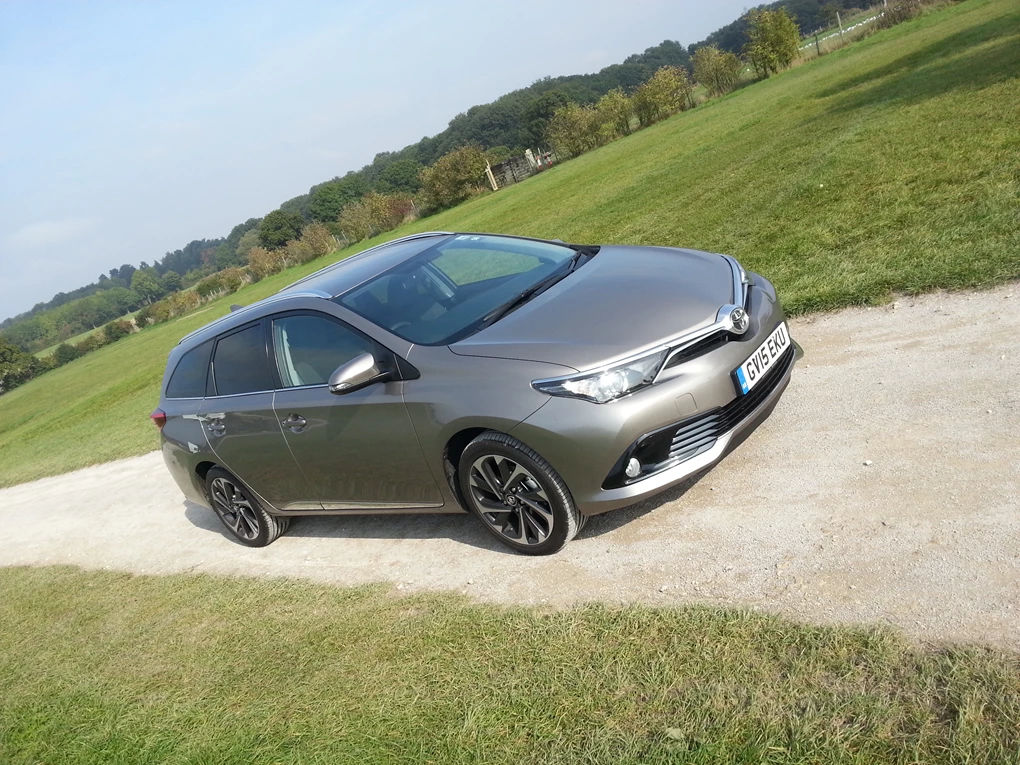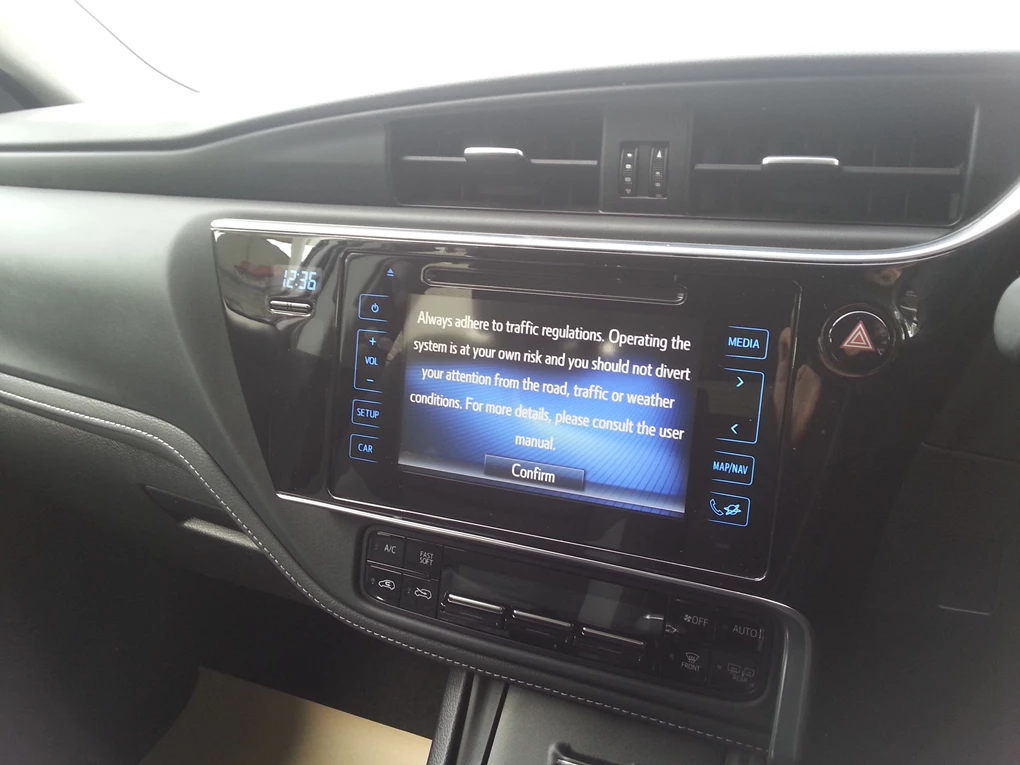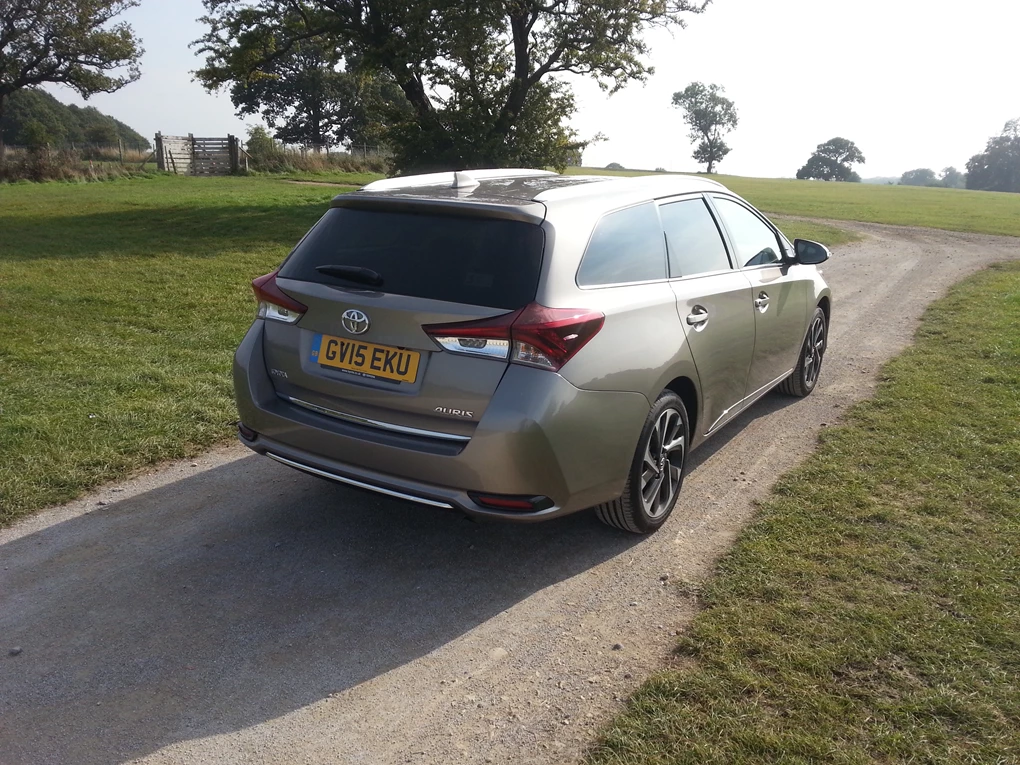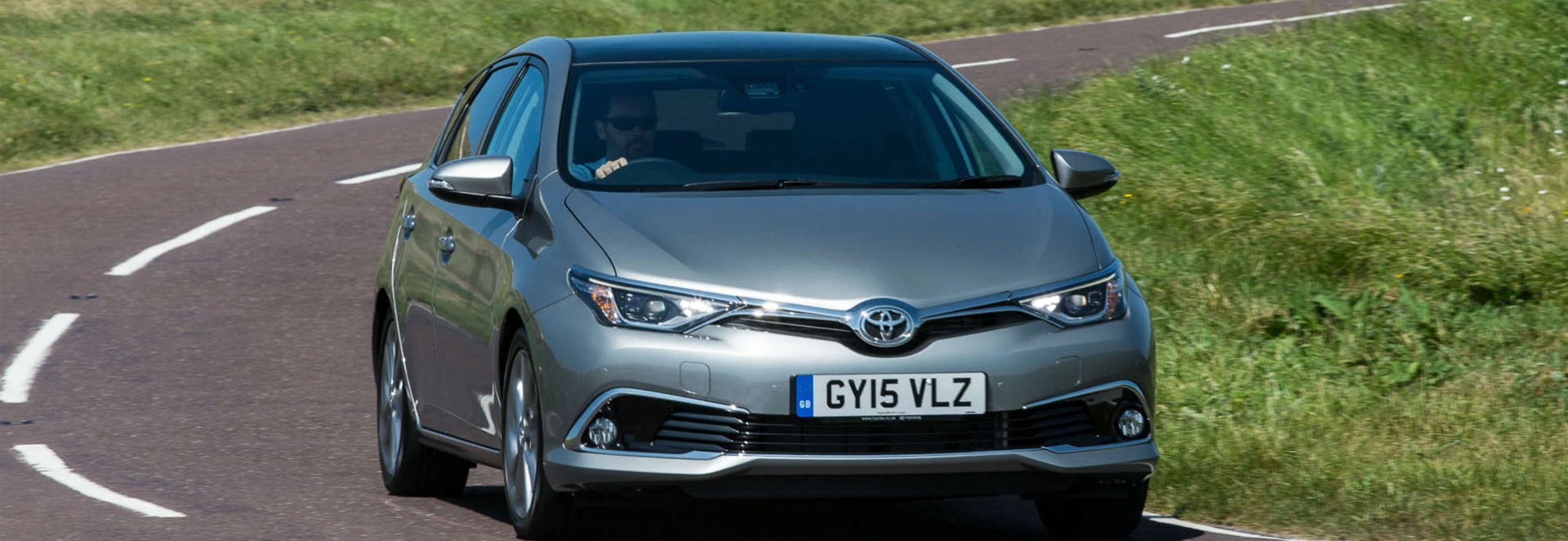The name Touring Sports is the unconventional term Toyota uses to distinguish the estate version of its Auris family car from the original hatchback.
This is a compact estate which faces plenty of competition such as the Ford Focus estate, Vauxhall Astra Sports Tourer, Honda Civic Tourer and Kia Cee’d Sportswagon.
On the surface its rather conservative styling might make it seem like it could easily just blend in with the crowd. However, there are some really intriguing things about this car which make it stand out in the estate segment.
For one thing, there’s a hybrid powertrain available. This is also the first Toyota in the UK to receive the manufacturer’s latest 1.2-litre petrol turbo engine.

Performance
Engines available for the Toyota Auris Touring Sports include a couple of petrol units - a 98bhp 1.33-litre unit and an 114bhp 1.2-litre turbo.
There’s also a couple of diesels – an 89bhp 1.4-litre unit and an 111bhp 1.6-litre engine – along with a 134bhp hybrid powertrain that combines a 1.8-litre petrol with an electric motor. With all engines a six-speed manual gearbox is standard, except for the hybrid which uses an automatic Continuously Variable Transmission (CVT) instead. A CVT is also available with the 1.2 turbo.
Speaking of the 1.2-litre turbo petrol, this is one of the fresher engines in the Auris range and it’s a very welcome entry too. This four-cylinder unit can accelerate the estate from zero to 62mph in 10.4 seconds (10.8 with the CVT) and it feels very smooth and lively. It’s a very worthy contender next to the EcoBoost turbo petrol engines offered with the Ford Focus estate. The gear change from the six-speed manual is very slick as well.
Other engines in the Auris Touring Sports line-up feel sluggish in comparison to the turbo unit, except for the 1.8-litre hybrid, which delivers ample pulling power with aid from the electric motor.
Ride and Handling
The ride is generally comfortable and does a decent job of soaking up bumps on the road.
Estate cars aren’t typically bought for their driving dynamics and although this Toyota may have ‘Sports’ in the name, there’s nothing really sporty about it. The drive still impresses in some ways, however, as the ride is generally comfortable and does a decent job of soaking up bumps on the road. The steering has a nice balance when it comes to weighting too. It’s light enough to feel easy-going and inspire confidence through tight city roads, but there’s also enough weight for the driver to feel engaged with how the car is reacting to the road. It would be even better if there was just a little more weight added to the steering, but this feels more like nit-picking, really. Body roll is minimal at slower speeds, but when travelling at 40mph-plus there is a noticeable amount of lean through the corners. Therefore, even with the decent 1.2 turbo under the bonnet, an enthusiastic driving approach is rarely encouraged. Bear in mind as well that this car can get quite noisy at higher speeds, especially if it’s using the CVT gearbox.

Interior and Equipment
Every single Auris model sold in Europe is built at Toyota’s UK plant in Burnaston, Derbyshire.
There are five trim levels for the Toyota Auris Touring Sports, starting with Active and followed by Icon, Business Edition, Design and Excel. Standard kit includes air conditioning, hill-start assistance and LED daytime running lights. You’ll have to move up to at least the Icon trim to get gadgets such as the Touch 2 multimedia system which supports DAB digital radio and Bluetooth connectivity. Filled with dull, dark grey materials, the interior of the Auris Touring Sports is not particularly interesting to look at and lacks the premium feel of other estates like the Volkswagen Golf. All the panels and buttons do feel solidly built though, and the small number of switches in the car are well laid-out, creating an uncluttered feel. The seats are also comfortable and there’s a lot of room for fitting up to five passengers. Because of the way the roof slopes towards the back, however, head room could be a bit of a squeeze for rear passengers over six feet tall. Standard boot capacity for this Toyota estate is decent at 530 litres. That’s way more than the Ford Focus Estate (offering just 476 litres) and it’s a near identical figure to the Kia Cee’d Sportswagon and Hyundai i30 Tourer. The Auris is far from class leading though, with the VW Golf Estate and Honda Civic Tourer both offering over 600 litres of boot space as standard. Fold the rear seats flat in the Touring Sports and total load capacity goes up to 1,658 litres. Happily, hybrid models do not compromise on load space because the batteries are stored behind the rear seats.
Cost
The hybrid version of the Auris Touring Sports is available for all trim levels and starts at just under £18,000.
Prices for the Toyota Auris Touring Sports start at about £16,750, which is over a grand cheaper than the Ford Focus Estate and over £2,000 less than the Golf estate. This starting price undercuts a lot of other rivals, although the Ceed Sportswagon and Astra Sports Tourer do start slightly cheaper. To get an Auris estate with the 1.2-litre turbo engine, you’ll have to go for at least the Icon trim and pay at minimum around £19,800. That’s a similar amount needed for the Ford Focus Estate with the 123bhp EcoBoost turbo petrol, although the 99bhp version can be bought for about a grand less comparatively. Prices climb to around £20,500 for the Business Edition and Design trims, while the range-topping Excel models start at just above £23,000. The hybrid version of the Auris Touring Sports is available for all trim levels and starts at just under £18,000. When picking the 1.2-litre turbo, the combined fuel economy for the Auris Touring Sports is 58.9mpg, while CO2 emissions are at 112g/km. Those figures are very respectable next to other estates with a similar type of engine. If greater efficiency is what you’re after, the 1.4 and 1.6-litre diesels reduce CO2 output to 106 and 108g/km respectively. Both also return just over 65mpg combined. The hybrid is by far the greenest option, emitting just 81g/km and averaging an impressive 70.6mpg combined.
Our Verdict
Its styling may be understated, but those looking for a new estate car should consider the Toyota Auris Touring Sports. That’s because it does a decent job of all the things you’d expect an estate to be good at. The 1.2-litre petrol turbo is a great addition to the engine line-up and we highly recommend it. Other engines in the range are unremarkable, except the hybrid which is very frugal but less refined than the turbo unit. While some other estates can offer more fun behind the wheel, the Auris is crucially capable of transporting a family of five in comfort along with a large load of luggage. Buying and running costs are competitive for its class as well and there’s a five year warranty included as standard, cementing the Toyota’s position further as an unpretentious, sensible purchase.





